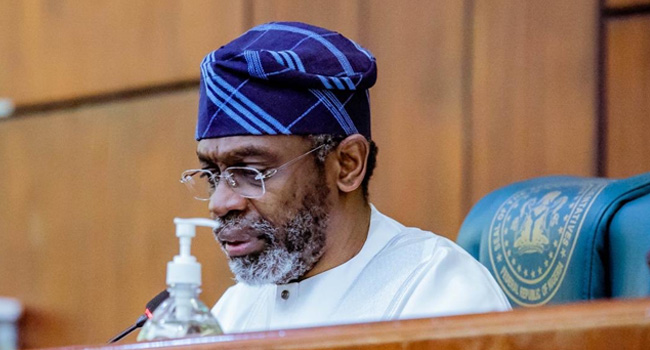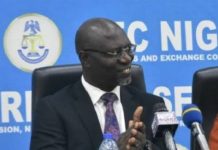Rep Femi Gbajabiamila, Speaker of the House of Representatives, has expressed sadness over the brain drain that has hit the country’s medical sector.
Gbajabiamila said it was unacceptable that over 2,000 resident doctors had left the country’s shores, with about 800 leaving in the last eight months, bringing the monthly average to about a hundred medical doctors leaving the country in search of better working conditions.
He did, however, say that the time had come for the government to address the underlying causes of the negative trend holistically.
Gbajabiamila, speaking during a courtesy call to his office on Thursday by the executives of the National Association of Resident Doctors (NARD), led by President Dr. Emeka Orji, cautioned that the issue of funding must be properly situated within the context of the current global economic situation because Nigeria is not an island.
Gbajabiamila responded to the figures of resident doctors who had left Nigeria due to poor remuneration, saying, “That is a very scary figure and it is not very encouraging for a country of over 200 million people to have the core of your medical team, your young ones, resident doctors, leaving in droves like that, definitely something must be wrong.”
“You have identified that to be the issue of emoluments and salaries, that’s always a very important issue. If you work, you must get paid, and you must get paid a good salary.
“It’s also important that we put those things in context in terms of everybody’s need to get paid, and that’s very important. That’s one of the reasons, if not the most important reason why you work, because we all have families to take care of. But we must put it in the Nigerian context in terms of the revenues available to the country.
“This is a worldwide phenomenon, right now everything is going down. Countries are not making as much revenue as they should.
“And I’m sure a lot of doctors that leave the shores of Nigeria in search of greener pastures, many of them will be happy, many of them will also realize it’s not so easy on the other side either.”
While commending those who decided to stay behind despite the situation, Gbajabiamila said, “What I would like to encourage you to do is to tarry a while, be a little bit more patient, and stay.”
“As long as you have our ears here as your legislature, we will always, as best as possible, come to your aid.”
“So, let’s put a stop to this brain drain as best as we can whilst we, on this side, try to make the environment a lot easier for you.”
The Speaker also assured the association that, as a critical sector of the economy, the clamour for an increase in the budgetary allocation for the health sector to meet the 2001 Abuja Declaration of 15% of the annual budget allocation to health would be investigated.
While cautioning stakeholders against the practice of equating the Ministry’s budgetary allocation to the sector’s entire budget, Gbajabiamila assured stakeholders that the House would ensure that the sector was not shortchanged in terms of resource allocation.
He added: “We’ll have a look at what percentage we have in this year’s budget for the health sector. We got the budget about a week ago, I’m still going through it, but I will zero in on health to find out what the percentage is, and how far away we are from the Abuja Declaration.
“I cannot promise that here. If we have fallen short, we will augment it, I cannot make that promise because it depends on a whole host of other things, but we will try our best to at least, come close. We will try our best to look at it objectively within the context of the revenue that is available to the country.
“There are so many things going on right now. That’s where the sacrifice comes in. Oil theft, dwindling revenue, the Ukraine war, and so many other things and everybody’s competing for the lean revenue, but we know our priority areas, education, and health, are priority areas. We’ll do everything we can to make sure that as best as we can, we come as close to the Abuja Declaration, as we can”.













